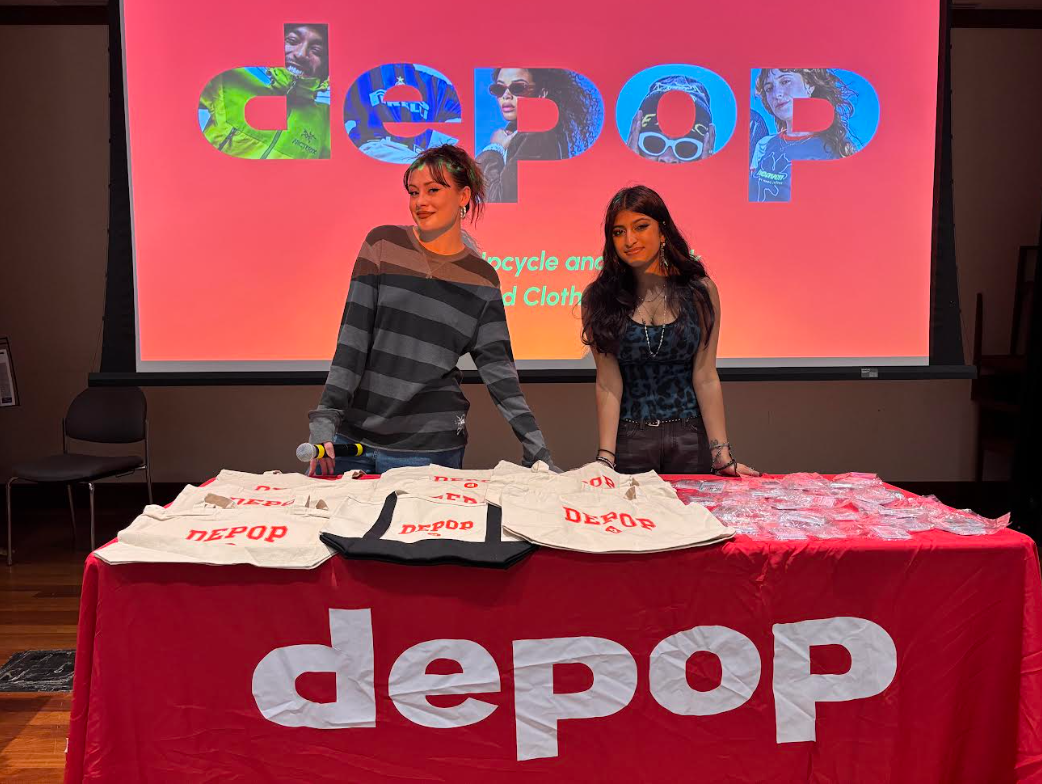When most people think of fashion, they picture luxury brands, stylish outfits and pretty people strutting down the runway. However, there’s more to the industry — from upcycling old clothes to thrifting for cheap. NYU’s Future Fashion Group is on a mission to educate and include students in the conversation on sustainable fashion.
FFG serves as an all-university club that welcomes anyone with a passion for fashion. NYU lacks a traditional fashion major, with the closest thing being an individualized major within Gallatin or classes like Costume Design in Tisch or Fashion and Power in Steinhardt. FFG has carved out an extracurricular space for people who are interested in fashion to learn more about it.
When it comes to clothes, Yashvi Rastogi, the vice president of FFG and a CAS sophomore, said “we’re trying to prolong their life.” FFG is doing everything to prevent clothes from being thrown out and discarded by showing there is another option for our clothes when they go out of style.
One of the ways FFG tries to encourage students to cut down on their fashion waste is by upcycling clothes that don’t suit their style anymore. Upcycling is the process of transforming discarded and unwanted materials like clothes into new items that can also serve a new purpose. Some benefits of upcycling your clothes include expressing your individuality, dressing sustainably and affordability.
Another important way to decrease fashion waste is to be more eco-conscious when purchasing clothing. Convenience is often prioritized above all, since it’s easier to think about clothes as quick and easy to buy and something we get rid of when we’re done with them. However, Rastogi and FFG believe that convenience isn’t always the biggest thing when it comes to fashion.
“Your impact is so much larger than just you,” Rastogi said.
For Earth Month, FFG is hosting a series of business presentations and sustainable clothing events throughout April. One of these events is an upcycling workshop that is a collaboration with Depop — a clothing app that aims to keep fashion circular by allowing users to buy and sell used clothes — because clothes are often thrown out instead.
Depop has student ambassadors at major universities across the United States, including NYU. NYU’s Depop ambassadors, Kuluxka James-Lejarcegui and Nikita Lal, both seniors majoring in music business at Steinhardt, reached out to FFG and other clubs at NYU to provide a series of upcycling workshops for Earth Month.
At the upcycling event hosted by Depop and FFG on April 15, they presented on how to repair, alter and create something new out of old clothes. They taught students mending, patchwork, cutting and altering, hemming, distressing, embroidery, fabric painting and repurposing denim.
In the spirit of Earth Month, FFG will be also hosting a clothing swap on Friday, April 25 on the ninth floor of Kimmel Center for University Life. Rastogi urges students to “just drop in when you can” and donate clothes, either throughout the week or by bringing clothes directly to the event. The event is free and you don’t have to donate anything to pick out clothes for yourself. At the end of the clothing swap, all leftover clothes will be donated to Materials for the Arts, a nonprofit organization that is a part of the New York City Department of Cultural Affairs.
FFG also publishes a student zine that has a unique theme each semester. The theme for fall 2024 was “Community” and in spring 2024, the theme was “Age of Innovation.” The FFG zine offers an opportunity to involve students in this goal even if they cannot attend every event hosted by the group.
Though the semester is coming to an end, FFG has big plans for the future, including applying for Green Grants issued by the NYU Office of Sustainability which offer funding up to $20,000 for initiatives related to improving sustainability at NYU. With this grant money, FFG hopes to start a club thrift store in the next year where they will have a designated space to collect clothes for clothing swaps and host workshops.
FFG is for everyone, no matter their school, major, year or place of origin. Despite its name, you don’t have to be a fashionista — you can show up in a sweatshirt and jeans or with a look fit for the runway.
“We just want to create a space for people that don’t want to make the world polluted through textiles,” Rastogi said.
Contact Alessa Alluin at [email protected].
























































































































































